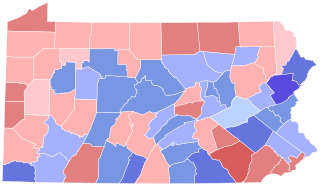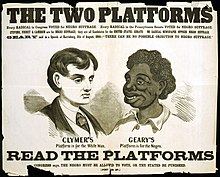
The 2006 Pennsylvania gubernatorial election was held on November 7, 2006, and included the races for the governor of Pennsylvania and lieutenant governor of Pennsylvania. Incumbent Democratic governor Ed Rendell successfully ran for re-election. Pennsylvania's first female lieutenant governor, Catherine Baker Knoll, was also running for re-election.

The 1998 Pennsylvania gubernatorial election was held on November 3, 1998. The candidates were incumbent Republican Tom Ridge, Democrat Ivan Itkin, Constitutionalist Peg Luksik and Libertarian Ken Krawchuk. Ridge, a popular moderate, won with 57 percent of the votes cast.

The Pennsylvania lieutenant gubernatorial election of 2010 was held on November 2, 2010. The winning candidates for Governor and Lieutenant Governor will serve a four-year term from 2011 to 2015. In Pennsylvania, the Lieutenant Governor is elected on the same ticket as the Governor, so the only campaign for this office was the primary election. As a result of Tom Corbett's election to the position of governor, Jim Cawley became the new Lieutenant Governor.

The 1874–75 United States Senate elections were held on various dates in various states. As these U.S. Senate elections were prior to the ratification of the Seventeenth Amendment in 1913, senators were chosen by state legislatures. Senators were elected over a wide range of time throughout 1874 and 1875, and a seat may have been filled months late or remained vacant due to legislative deadlock. In these elections, terms were up for the senators in Class 1.

The 1990 Pennsylvania gubernatorial election was held on November 6, 1990. Incumbent Democratic governor Robert P. Casey easily defeated Republican Barbara Hafer. Governor Casey defeated Hafer by a margin of 35.29%, and carried 66 out of 67 Pennsylvania counties.

The 1906 Pennsylvania gubernatorial election occurred on November 6, 1906. Incumbent Republican governor Samuel W. Pennypacker was not a candidate for re-election.

The 1914 Pennsylvania gubernatorial election occurred on November 3, 1914. Incumbent Republican governor John K. Tener was not a candidate for re-election. Republican candidate Martin Grove Brumbaugh defeated Democratic candidate Vance C. McCormick to become Governor of Pennsylvania.

The 1918 Pennsylvania gubernatorial election occurred on November 5, 1918. Incumbent Republican governor Martin Brumbaugh was not a candidate for re-election. Republican candidate William Sproul defeated Democratic candidate Eugene C. Bonniwell to become Governor of Pennsylvania.

The 1922 Pennsylvania gubernatorial election occurred on November 7, 1922. Incumbent Republican governor William Sproul was not a candidate for re-election. Republican candidate Gifford Pinchot defeated Democratic candidate John A. McSparran to become Governor of Pennsylvania. John Stuchell Fisher unsuccessfully sought the Republican nomination.

The 1926 Pennsylvania gubernatorial election occurred on November 2, 1926. Incumbent Republican governor Gifford Pinchot was not a candidate for re-election. Republican candidate John Fisher defeated Democratic candidate Eugene C. Bonniwell to become Governor of Pennsylvania. Edward E. Beidleman, Thomas Wharton Phillips Jr., and John K. Tener unsuccessfully sought the Republican nomination.

The 1930 Pennsylvania gubernatorial election occurred on November 4, 1930. Incumbent Republican governor John Stuchell Fisher was not a candidate for re-election. Republican candidate and former governor Gifford Pinchot defeated Democratic candidate John M. Hemphill to win a second, non-consecutive term as Governor of Pennsylvania.

The 1934 Pennsylvania gubernatorial election occurred on November 6, 1934. Incumbent Republican governor Gifford Pinchot was not a candidate for re-election.

The 1938 Pennsylvania gubernatorial election occurred on November 8, 1938. Incumbent Democratic governor George Howard Earle III was not a candidate for re-election. Republican candidate Arthur James defeated Democratic candidate Charles Alvin Jones to become Governor of Pennsylvania. Gifford Pinchot unsuccessfully sought the Republican nomination, while Thomas Kennedy unsuccessfully sought the Democratic nomination.

The 1942 Pennsylvania gubernatorial election occurred on November 3, 1942. Incumbent Republican governor Arthur James was not a candidate for re-election. Republican candidate Edward Martin defeated Democratic candidate F. Clair Ross to become Governor of Pennsylvania.

The 1878 Pennsylvania gubernatorial election occurred on November 5, 1878. Incumbent governor John F. Hartranft, a Republican, was not a candidate for re-election.

The 1882 Pennsylvania gubernatorial election occurred on November 7, 1882. Incumbent governor Henry M. Hoyt, a Republican, was not a candidate for re-election.

On January 15, 1867, Simon Cameron was elected to the United States Senate by the Pennsylvania General Assembly for the third time; it had previously chosen him in 1845 and 1857. The legislature voted for Cameron over the incumbent, Senator Edgar Cowan, who, though a Republican, was endorsed by the Democratic legislative caucus. With the Republican Party holding a large majority in the legislature, the main battle was for its endorsement: the caucus of Republican legislators had voted for Cameron over Governor Andrew Curtin.

The 2022 Pennsylvania gubernatorial election was held on November 8, 2022, to elect the governor and lieutenant governor of Pennsylvania. Democratic state attorney general Josh Shapiro defeated Republican state senator Doug Mastriano to win his first term in office. Shapiro succeeded Democratic incumbent Tom Wolf, who was term limited.

The 1866 Vermont gubernatorial election took place on September 4, 1866. In keeping with the "Mountain Rule", Incumbent Republican Paul Dillingham was a candidate for a second one-year term as governor of Vermont. With the election taking place soon after the American Civil War, Dillingham ran as a pro-Union Republican. The Democratic nomination was won by Charles N. Davenport of Wilmington, an attorney and founder of the Brattleboro Reformer newspaper, who was also the Democratic nominee in 1865. In the general election, Dillingham was easily elected to a second one-year term as governor.






















